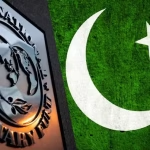On Thursday, the Federal Shariat Court deemed Pakistan’s Interest Act 1839 un-Islamic, ordering the government to replace the Riba-based financial system with an Islamic one within five years.
On April 12, a full bench of the Federal Shariat Court (FSC), led by Chief Justice Muhammad Noor Meskanzai and included Justice Dr. Syed Muhammad Anwar and Mr. Justice Khadim Hussain M. Shaikh, reserved its decision in the Riba case.
The Shariat Appellate Bench Supreme Court of Pakistan remanded the long-running Riba case in 2002.
The judgement was issued by Justice Syed Muhammad Anwar, who stated that implementing an interest-free banking system in Pakistan is doable, since it is being done by various institutions in the nation.
The court concluded that eliminating Riba is the foundation of the Islamic system, and that any interest paid on a loan falls within the category of Riba, which is forbidden in Islam.
The government pays interest on all internal and foreign obligations. The court decided in Riba and required the government to make interest-free transactions with international organisations such as the International Monetary Fund (IMF) and the World Bank.
The Federal Shariat Court stated in its judgement that the government should eliminate the term “interest” from all banking laws. All legislation including the term “interest” should be abolished immediately. The judgement said that any legislation that use the word “interest” are regarded to be against Islamic law.
According to the Shariah court, any legal terms including the word “interest” shall be null and invalid as of June 1.
According to the court, if Article 38F had been applied, the ‘interest’ would have ceased decades ago. The court noted that 30 percent of banking has been shifted to the Islamic system, pursuant to the State Bank of Pakistan’s (SBP) strategic strategy. For an Islamic and interest-free banking system, five years is sufficient. In Parliament, the administration is due to submit an annual report on interest rates. Even after two decades, the government’s request for time to implement an interest-free economic system is inexplicable.
The Federal Shariat Court’s verdict further stated that the government should take immediate action to abolish the interest rate system. In court, the Attorney General indicated that eliminating the interest rate structure would take time. In 2001, the Supreme Court Shariat Appellate Bench ordered the order to eliminate the interest system to be implemented. The bench directed the AGP to tell the court of the time frame necessary for the interest system to be abolished. The Islamic financial system is risk-free and devoid of exploitation.
According to the court, 20 percent of banking in Pakistan has been converted to Islamic banking, and the transition from an interest-based economy to a Sharia-based economy is feasible in the next five years.
The petitioners, their counsels, jurisconsults, amicus curiae, economists, experts, professors, chartered accountants, Attorney General, and Advocate Generals testified in 34 sessions, offering proposals for converting the present banking system into a Riba-free Islamic banking system.
Mr. Miftah Ismail, Minister of Finance, praised the Federal Shariah Court’s judgement. The minister stated in a tweet that the government and SBP will conduct a comprehensive investigation into the incident and seek necessary advice from the FSC.
According to Ahmed Ali Siddiqui, Director of the Centre of Excellence in Islamic Finance, the interest-based financial system might be transformed into an Islamic financial system with a thorough action plan and unshakable commitment from the government and public sector entities.
The government should not stop using traditional banking methods to borrow money. Instead, it might get funding from Islamic banks and organisations throughout the world, including the International Monetary Fund, Asian Development Bank, and World Bank, which all support Shariah-compliant finance.
The government and its departments should stop using the Riba-based system for financial and transactional problems and instead work with Islamic institutions that have already devised other solutions, he added.
There are 5 full-fledged Islamic banks (IBs) and 17 conventional banks with Islamic banking branches in the Islamic banking industry (IBBs). Across the country, there are over 4,000 branches.









